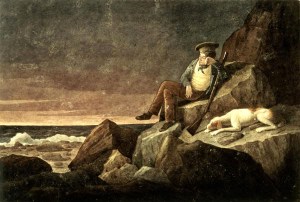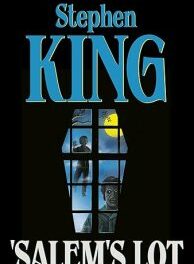We support our Publishers and Content Creators. You can view this story on their website by CLICKING HERE.
Trevor Colbourn considers the Declaration of Independence the highest expression of Anglo-Saxon thought and liberty. Not only did it draw upon the Whig traditions of natural rights and common law, but it identified the king as a traitor to his own office.
The Lamp of Experience: Whig History and the Intellectual Origins of the American Revolution, by Trevor Colbourn (Liberty Fund, 1998, 328 pages)
As I’ve had the chance to mention a couple of times, here and elsewhere, I’m currently writing a rather longish (80,000-100,000-word) tribute for the 250th anniversary of the Declaration of Independence for the American Institute for Economic Research. If you can’t tell, I’m rather excited about it!
As such, since May of this year, I’ve been able to immerse myself—rather joyfully—in all things Jefferson, Declaration, 1776, Independence, etc. Additionally, this past spring, I was able—as I do every other year—teach the upper-level course, Founding of America, 1753-1807. Such immersion has been, to be sure, simply glorious. One of the finest aspects of such immersion, though, is that I have an excuse to re-read all of my favorite books. And, one of my all-time favorite books is Trevor Colbourn’s Lamp of Experience: Whig History and the Intellectual Origins of the American Revolution, originally published in 1965 but more recently republished by the mighty Liberty Fund.
The book itself is a close examination of what the Founders actually read. That is, what titles were available in America, what translations, what libraries, what was taught in one of the nine different colonial colleges, etc. While Colbourn is not intellectually determinist in the way that someone might accuse, say, Bernard Bailyn, of being, he does hold a healthy respect for the power of the word and its influence on those who absorb it.
Properly, Colbourn cites John Adams’s notion that the real revolution came not from the war, but from the ideas preceding and leading to the war. As he famously remembered in 1818 in a private letter to Hezekiah Niles:
But what do we mean by the American Revolution? Do we mean the American war? The Revolution was effected before the war commenced. The Revolution was in the minds and hearts of the people, a change in their religious sentiments of their duties and obligations…. This radical change in the principles, opinions, sentiments, and affections of the people, was the real American Revolution.
Along the same lines, Colbourn cites the first historian of the American Revolution, South Carolinian, David Ramsey: “In establishing America,” he wrote in 1789, “the pen and the press had merit equal to that of the sword.” As Colbourn notes so poignantly,
“The Revolutionary leaders were men of substance—propertied, educated. They read. And what they read made it easier for them to become rebels because they did not see rebels when they looked in the mirror,” the great historian had written. “They saw transplanted Englishmen with the rights of expatriated men. They were determined to fight for inherited historic rights and liberties.”
The Lamp of Experience, as its subtitle, “Whig History and the Intellectual Origins of the American Revolution,” suggests, considers the philosophy of history held by the American founders. As Colbourn persuasively argues, the Founders were first and foremost historians, even before being political philosophers. As lawyers, they especially loved history and the argument of tradition, customs, morals, mores, habits, and norms.
From their perspective, American Whigs (or Patriots) thought independence came from a long train of Anglo-Saxon thought and English precedents. Idealizing pre-Norman England, American Whigs believed that early Anglo-Saxon tribes—as described by Tacitus in his extremely popular Germania—had lived by an elective monarchy and its attendant Witan (the earliest example of parliament), had lived according to a strictly conservative morality, and had successfully declared their independence from other Germanic tribes. Critically, the Anglo-Saxons had lived according to the common law, cherishing the right to a trial by jury, freedom from cruel and excessive punishments, and treasuring the right to habeas corpus. The greatest hero of Anglo-Saxon England was, by far, the most righteous medieval king, Alfred the Great. Critically important to their understanding of polity as well, was that the king could have a militia, but he could not control a standing army.
The invasion of William the Bastard against Harold of Hastings in 1066, though, had upset and overturned much of the noble Anglo-Saxon culture and polity, establishing a monarchical tyranny and undoing much of the common law. In a strange and uncomfortable dialectic, English history, then, became a constant struggle between Anglo-Saxon liberty and Norman tyranny. Though the legacy of Alfred remained, it struggled intensely against Norman mischief. Some great victories occurred, though, such as the writing of the Magna Carta in 1215, the formal establishment of Parliament, the Glorious Revolution of 1688, and the Bill of Rights the following year.
When the Americans began to question the intentions of the English—through James Otis in February 1761, through the establishment of a Stamp Act Congress a half-decade later, and through the Boston Tea Party in 1773—Whigs interpreted these events as the continuing struggle of Anglo-Saxon liberty vs. Norman tyranny. Now, though, the Americans represented the Anglo-Saxons, and the English Parliament were the dupes and movers of Norman repression. The Americans had tried to remain loyal to the king throughout the 1760s and the first several years of the 1770s, but had finally put that aside, recognizing in him his Norman soul, with the Declaration of Independence in 1776.
In this way, Colbourn notes, the Americans were not radicals in the progressive sense, but radicals in the conservative sense. Always, they saw themselves as restoring rather than creating. Much of their language, they drew from Tacitus. “Tacitus contributed to the popular notion of a golden age of political liberty in the past—ancient laws and customs were the best,” Colbourn writes. As such, “Liberty did not have to be created; it only needed to be restored.” The past, itself, was deeply authoritative, unlike the present, which seemed shallow by comparison.
In some ways, The Lamp of Experience, is a history of colonial education, colonial printing, and colonial reading. Powerfully, Colbourn reveals that by 1776, for example, there were more than sixty subscription libraries in what would become the United States. The most influential, by far, was the Library Company of Philadelphia. It was, the author states, “probably without peer. Not only did its membership supply ten signers of the Declaration of Independence, but the Library served as the reference collection for the Pennsylvania Assembly and the Continental Congress.” Additionally, by the mid-eighteenth century, there were 24 printing presses in the colonies “which produced over thirty-six hundred titles between 1743 and 1760.”
Throughout his book, Colbourn traces the thoughts of the colonial mind, but he concludes by considering the Declaration of Independence the highest expression of Anglo-Saxon thought and liberty. Not only did it draw upon the Whig traditions of natural rights and common law, but it identified the king as a traitor to his own office.
The Lamp of Experience is an excellent book. It should be owned and read by every patriot.
The Imaginative Conservative applies the principle of appreciation to the discussion of culture and politics as we approach dialogue with magnanimity rather than with mere civility. Will you help us remain a refreshing oasis in the increasingly contentious arena of modern discourse? Please consider donating now.
The featured image is “The Lamplighter” by Erik Ludvig Henningsen (1855-1930).

 Conservative
Conservative  Search
Search Trending
Trending Current News
Current News 






